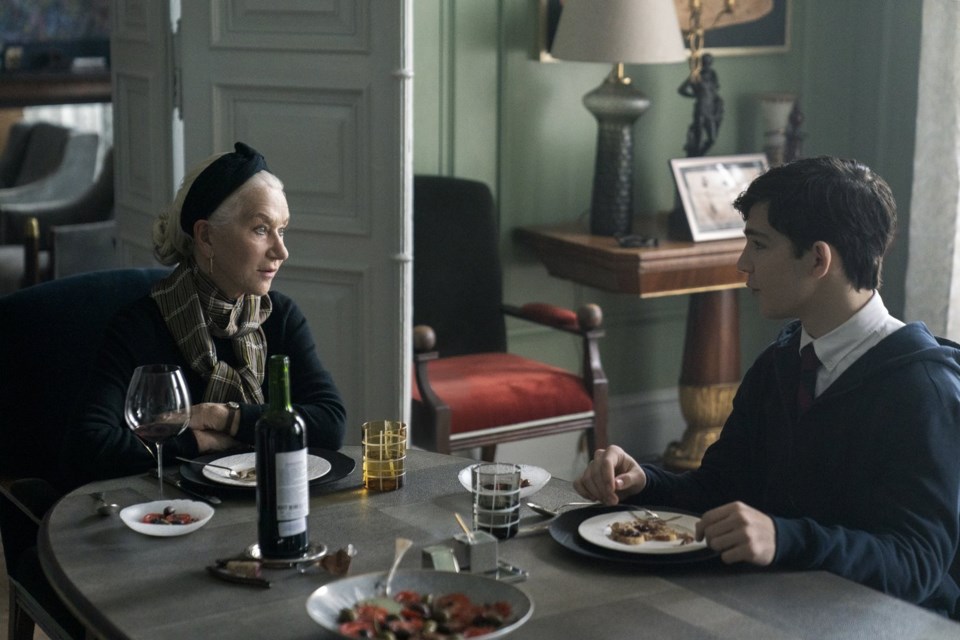It’s never a bad time for stories celebrating acts of kindness, but the current news cycle makes it ever so more appreciated. In the new film “White Bird,” in theaters Friday, the act is quite significant: A family in Nazi-occupied France shelters a young Jewish girl, whose friends and family have all been taken away.
From German director Marc Forster (“Finding Neverland,” “The Kite Runner”) “White Bird” is a handsome adaptation of R.J. Palacio’s graphic novel aimed at young adults. This, too, is perfectly suited to that audience — a story within a story with all the drama of war and young romance wrapped up in it. Let’s just not overplay the idea that it’s part of some shared cinematic kindness universe with the Julia Roberts and Owen Wilson film “Wonder,” also based on Palacio's work.
It’s framed as something a grandmother is telling her grandson, who seems to be going down the wrong path. Helen Mirren is said Grandmère, or Sara Blum, a famous artist who opens up to young Julian (Bryce Gheisar) one evening over dinner about what she went through during the war. For being a neglected rich kid who is prone to getting kicked out of fancy private schools, Julian’s immediate, earnest interest in what his Grandmère has to say is perhaps the most unbelievable part of this story, which includes some deus ex machina wolves. It’s a way in, I suppose, and Mirren makes for a lovely narrator.
Ariella Glaser plays young Sara Blum, who leads a nice life in her small French town with educated, professional parents Max (Ishai Golan) and Rose (Olivia Ross). She barely notices the changing tides as the war ramps up, more concerned with her friends and the cute boy in school. The story takes care to note that she barely noticed the classmate that would end up saving her life: Julien (Orlando Schwerdt), who walks with a crutch and whose father works in the sewers. Not, in other words, a popular kid. In an awkward moment, the audience, and Julien, realize that she doesn’t even know his name.
But when the Nazis come to round up the Jewish students in the school, he’s there to help get her to his family’s property. Gillian Anderson plays Julien’s mother, Vivienne, a grounding presence but very much a side character until a devastating sequence late in the film.
The young actors are very good and well-cast in their journey to friendship and then first love. They get to know one another and spend time dreaming up a world in which they’re not confined to a barn, their imaginations brought to life through dreamy projected images.
“White Bird,” which was shot in early 2021, was delayed several times over the past two years. Often, that signals some sort of quality issue and an obligation to begrudgingly release in spite of it. But that’s not the case here: This is a very finely made movie that seemed to have just gotten caught in a sort of release limbo that’s only partially related to the strikes.
It’s a little by-the-book — exactly, perhaps, what you might expect from elevated historical fiction aimed at young adults. Being a good-hearted, straightforward film that might even have you shedding a few tears is no crime against cinema.
“White Bird,” a Lionsgate release in theaters Friday, is rated PG-13 by the Motion Picture Association for “thematic material, some strong violence and language.” Running time: 120 minutes. Two and a half stars out of four.
Lindsey Bahr, The Associated Press



